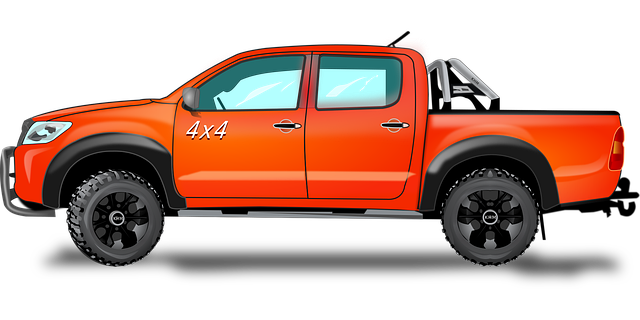In dynamic environments like Brownsville, Texas, tow hooks are crucial for fleet truck safety, securing trailers and enabling swift steering repairs. The bustling trucking industry relies on these mechanical devices to minimize downtime and costs associated with vehicle malfunctions. Regular maintenance, including inspections and replacing worn parts, ensures optimal performance. Choosing the right tow hook based on vehicle weight, towing capacity, and environmental conditions aligns with safety standards, preventing future complications for fleet truck steering repair in Brownsville, Texas.
In the bustling landscape of transport and logistics, fleet truck safety is paramount. One often-overlooked component crucial to this equation is the tow hook—a vital fixture in the symphony of fleet truck steering repair in Brownsville, Texas. Understanding these hooks’ role in enhancing safety and facilitating efficient repairs can significantly impact operational continuity. This article explores how regular maintenance and selecting the right tow hooks contribute to optimal performance for your fleet trucks, with a focus on local steering repair services in Brownsville, Texas.
- Understanding Tow Hooks: Their Role in Fleet Truck Safety and Steering Repair in Brownsville, Texas
- The Importance of Regular Maintenance and Choosing the Right Tow Hooks for Optimal Performance
Understanding Tow Hooks: Their Role in Fleet Truck Safety and Steering Repair in Brownsville, Texas

Tow hooks play a critical role in maintaining fleet truck safety and facilitating efficient steering repairs, particularly in dynamic environments like Brownsville, Texas. These robust mechanical devices are designed to securely attach trailers or load-carrying equipment to trucks, ensuring stability during transport. In the event of a steering issue or accident, tow hooks serve as a crucial point of connection for recovery and repair teams, enabling them to safely extract and tow affected vehicles without causing further damage.
Brownsville’s bustling fleet truck industry benefits significantly from these safety features. With numerous trucking companies navigating the city’s highways and roads, prompt and reliable steering repairs are essential to maintain operational efficiency. Tow hooks simplify the recovery process, allowing mechanics to quickly assess and address steering problems, reducing downtime and minimizing costs associated with vehicle accidents or malfunctions on Texas’ busy transportation networks.
The Importance of Regular Maintenance and Choosing the Right Tow Hooks for Optimal Performance

Regular maintenance is key to ensuring your tow hooks function optimally, especially for those in a fleet truck steering repair Brownsville Texas environment. Regular inspections should be conducted to identify any signs of wear and tear, such as corroded or damaged components. Prompt replacement of worn parts is crucial to maintain safety and prevent further complications. By keeping an eye on these details, you can extend the lifespan of your tow hooks, ensuring they perform at their best when needed most.
Choosing the right tow hook is equally important for optimal performance. Different situations require different types of hooks; considering factors like vehicle weight, towing capacity, and environmental conditions is essential. For instance, heavy-duty hooks may be suitable for hauling large trailers in challenging weather conditions, while lighter alternatives might be better for smaller jobs or lighter loads. Selecting the appropriate hook aligns with safety standards and prevents issues down the line.
Tow hooks play a pivotal role in maintaining fleet truck safety and ensuring efficient steering repair in Brownsville, Texas. By understanding their function and investing in regular maintenance, trucking operations can significantly reduce risks on the road. Choosing the right tow hook for optimal performance is essential, considering factors like vehicle weight, towing capacity, and environmental conditions. This simple yet crucial component can make all the difference in preventing accidents and keeping fleets running smoothly in the dynamic world of transport.



